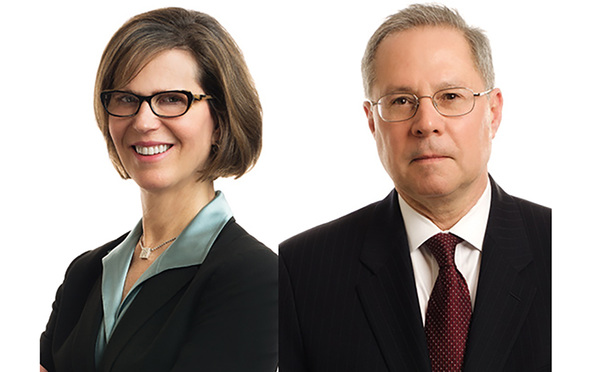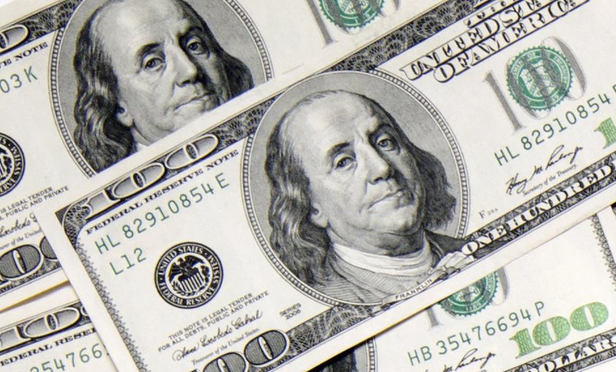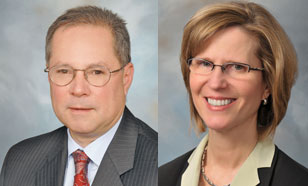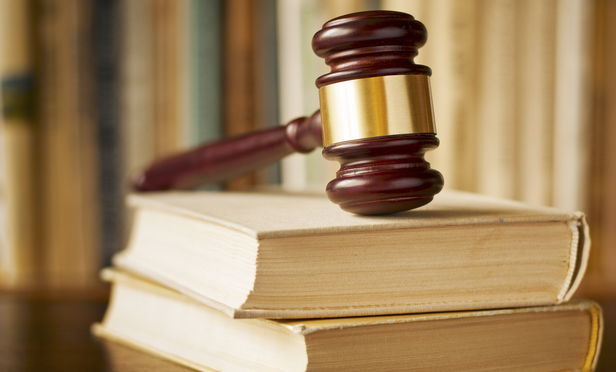Robert L Hickok And Gay Parks Rainville

June 04, 2018 | The Legal Intelligencer
High Court to Resolve Circuit Split Over Applicability of 'American Pipe' Tolling RuleNearly 45 years ago, the U.S. Supreme Court handed down its landmark decision in American Pipe & Construction v. Utah, 414 U.S. 538, 553 (1974), holding that the filing of a class action “tolls the running of the statute of limitations for all purported members of the class who make timely motions to intervene after the court has found the suit inappropriate for class action status.”
By Robert L. Hickok and Gay Parks Rainville
2 minute read

March 14, 2018 | The Legal Intelligencer
Second Circuit Provides Helpful Guidance for Rebutting Price ImpactEarlier this year, a panel of the U. S. Court of Appeals for the Second Circuit issued an opinion in the securities fraud action, Arkansas Teachers Retirement System v. Goldman Sachs Group, 879 F.3d 474 (2d. Cir. 2018), that provides district courts with long-overdue guidance for assessing a defendant's rebuttal evidence at the class certification stage.
By Robert L. Hickok and Gay Parks Rainville
10 minute read

December 05, 2017 | The Legal Intelligencer
Second Circuit Applies Lenient Standards for Certifying Classes in Securities LitigationOn Nov. 6, a three-judge panel of the U.S. Court of Appeals for the Second Circuit issued an opinion in Waggoner v. Barclays, No. 16-1912, 2017 U.S. App. LEXIS 22115 (2d Cir. Nov. 6, 2017), that—if allowed to stand—will make it significantly easier for plaintiffs to obtain class certification in actions alleging violations of Section 10(b) of the Securities Exchange Act of 1934, 15 U.S.C. Section 78j(b), and Securities and Exchange Commission Rule 10b-5 (10(b) actions) against large, publicly traded companies.
By Robert L. Hickok and Gay Parks Rainville
11 minute read

September 01, 2017 | The Legal Intelligencer
High Court Restores Protection Intended by Securities Statute of ReposeIn a landmark 5-4 ruling issued earlier this summer, the U.S. Supreme Court held that the filing of a putative class action does not toll the three-year statute of repose for opt-out claims brought under Section 11 of the Securities Act of 1933 (Securities Act), in California Public Employees' Retirement System v. ANZ Securities, 137 S. Ct. 2042 (2017). By refusing to apply the equitable tolling rule of American Pipe & Construction Co. v. Utah, 414 U. S. 538 (1974), to the Securities Act's statute of repose (Section 13 of the act), the court restored the statute's purpose to protect defendants "from an interminable threat of liability."
By Robert L. Hickok and Gay Parks Rainville
11 minute read

June 05, 2017 | The Legal Intelligencer
Are Item 303 Omissions Actionable Under Rule 10b-5?During its October term this year, the U.S. Supreme Court will hear argument in Leidos v. Indiana Public Retirement System, No. 16-581, on an important federal securities fraud issue: Whether a publicly held company's omission of "known trends and uncertainties" in its annual or interim reports, as required by Item 303 of Securities Exchange Commission (SEC) Regulation S-K, can give rise to a private securities fraud claim under Section 10(b) of the Securities Exchange Act of 1934 and SEC Rule 10b-5 (Rule 10-5).
By Robert L. Hickok and Gay Parks Rainville
7 minute read

March 02, 2017 | The Legal Intelligencer
2017 Sees Uptick in Biotech/Pharma Securities Class ActionsAs Cornerstone Research reported earlier this year in "Securities Class Action Filings: 2016 Year in Review," attorneys representing shareholder plaintiffs filed 270 securities class actions in 2016, which is a 44 percent increase from both the 188 actions filed in 2015 and the historical yearly average of 188 filings during the 1997 to 2015 time period.
By Robert L. Hickok and Gay Parks Rainville
13 minute read

December 09, 2016 | The Legal Intelligencer
Second Circuit Relaxes Burden for Proving Price Impact, Loss CausationOn Sept. 27, the U.S. Court of Appeals for the Second Circuit affirmed the Southern District of New York's post-trial rulings in the long-pending securities class action, In re Vivendi Universal, S.A. Securities Litigation, 838 F.3d 223, 2016 U.S. App. LEXIS 17566 (2d Cir. 2016). After a three-month trial, a jury entered a verdict against Vivendi, finding that, during the Oct. 30, 2000-Aug. 14, 2002, class period, the company made 57 material misstatements that artificially inflated its stock price in violation of Section 10(b) of the Securities Exchange Act of 1934 and the U.S. Securities and Exchange Commission Rule 10b-5.
By Robert L. Hickok and Gay Parks Rainville
12 minute read

September 03, 2016 | The Legal Intelligencer
Leakage Loss Causation Model Fails to Meet Admissibility StandardsIn July, U.S. District Judge Robert W. Sweet of the Southern District of New York issued a comprehensive opinion in the federal securities action, Sherman v. Bear Stearns, Master File No. 08 MDL 1963, Index No. 09 Civ. 8161, 2016 U.S. Dist. LEXIS 97784, at *18-35 (S.D.N.Y. July 25, 2016), explaining why the plaintiff's expert report purporting to prove loss causation under a "leakage" theory should be excluded.
By Robert L. Hickok and Gay Parks Rainville
16 minute read

June 07, 2016 | The Legal Intelligencer
Defendants Look for Broader Interpretation of 'Halliburton II'This month marks the two-year anniversary of the U.S. Supreme Court's seminal securities class action decision, Halliburton v. Erica P. John Fund (Halliburton II), 134 S. Ct. 2398 (2014), which allows defendants to rebut—at the class certification stage—the fraud-on-the-market presumption of reliance permitted under Basic v. Levinson, 485 U.S. 224 (1988). According to Halliburton II, defendants may rebut the Basic presumption by showing that their alleged misrepresentations had no impact on the defendant company's stock price. Notably, the court held that defendants may show lack of price impact with appropriate evidence that either "the asserted misrepresentation (or its correction) did not affect the market price of the defendant's stock." Reiterating its decision in Basic, the court explained that "'any showing that severs the link between the alleged misrepresentation and ... the price received (or paid) by the plaintiff ... will be sufficient to rebut the presumption of reliance.'"
By Robert L. Hickok& and Gay Parks Rainville
10 minute read

March 01, 2016 | The Legal Intelligencer
High Court Review Sought in Deepwater Horizon Securities LitigationLast fall, the U.S. Court of Appeals for the Fifth Circuit upheld a district court order denying class certification to a group of BP plc shareholders in the securities litigation, Ludlow v. BP plc, 800 F.3d 674 (5th Cir. 2015).
By Robert L. Hickok and Gay Parks Rainville
7 minute read
Trending Stories
- 1Goodwin Procter Relocates to Renewable-Powered Office in San Francisco’s Financial District
- 2'Didn't Notice Patient Wasn't Breathing': $13.7M Verdict Against Anesthesiologists
- 3'Astronomical' Interest Rates: $1B Settlement to Resolve Allegations of 'Predatory' Lending Cancels $534M in Small-Business Debts
- 4Senator Plans to Reintroduce Bill to Split 9th Circuit
- 5Law Firms Converge to Defend HIPAA Regulation



